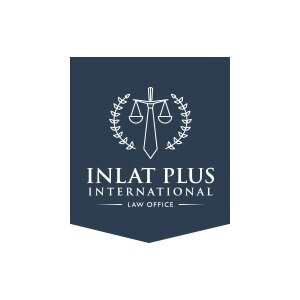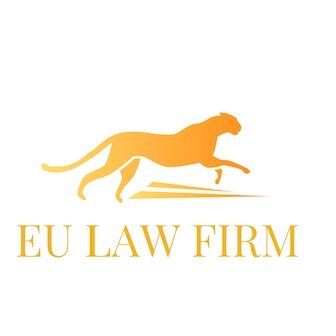Best Project Finance Lawyers in Riga
Share your needs with us, get contacted by law firms.
Free. Takes 2 min.
List of the best lawyers in Riga, Latvia
About Project Finance Law in Riga, Latvia
Project finance is a method of funding large-scale infrastructure and industrial projects, such as energy facilities, transportation systems, or real estate developments, using the project's future cash flows as collateral for the loan. In Riga, Latvia, project finance is a dynamic field due to the city's role as a major economic and logistics hub in the Baltics. The process typically involves complex contractual structures between multiple parties, including lenders, sponsors, contractors, and public authorities. Legal frameworks in Latvia are designed to facilitate both domestic and international investments while protecting interests concerning land acquisition, construction, environmental compliance, and operations.
Why You May Need a Lawyer
Securing legal assistance in project finance transactions can help mitigate risks and ensure compliance with Latvian law. Common scenarios where a lawyer's expertise is invaluable include:
- Drafting and negotiating loan agreements, security documents, and shareholder arrangements
- Navigating regulatory approvals, permits, and licenses needed for project development
- Ensuring compliance with environmental, construction, and zoning laws
- Structuring public-private partnerships (PPP) and concession agreements
- Advising on cross-border transactions and foreign investment rules
- Resolving disputes among project participants or with governmental bodies
- Managing risks related to political changes, currency fluctuation, and force majeure events
Because project finance involves significant investments and complex legal relationships, even minor oversights can lead to costly delays or liabilities.
Local Laws Overview
Project finance in Riga operates within several layers of Latvian legislation, European Union regulations, and international best practices. Key legal aspects include:
- Contract Law: Governed by the Latvian Civil Law, which sets out the rights and obligations of parties in loan and security agreements.
- Corporate Law: Determines how project companies or special purpose vehicles (SPVs) are incorporated and managed.
- Secured Transactions: Registration of mortgages, pledges, and other security interests must follow Latvian law, usually registered in public registries.
- Public Procurement and PPP: Regulated by the Public Procurement Law and the Public-Private Partnership Law, covering how projects can be developed in cooperation with public authorities.
- Taxation: Includes VAT, corporate income tax, and other relevant taxes that may impact project structures.
- Environmental and Construction Law: Projects must comply with requirements for environmental impact assessment, building permits, and land use planning.
- Bankruptcy and Insolvency: Rules that affect the enforcement of security and the recovery of debts if a project fails.
Understanding these legal areas is critical when structuring and executing any project finance deal in Riga.
Frequently Asked Questions
What is project finance and how does it differ from traditional corporate finance?
Project finance focuses on funding a specific project where the repayment comes from the cash flow generated by that project, rather than the general creditworthiness of the sponsors. In traditional finance, the company's entire balance sheet may be used as collateral.
What types of projects are commonly financed through project finance in Riga, Latvia?
Energy plants, transportation infrastructure (such as roads or railways), commercial real estate developments, and public utility projects are most commonly financed using project finance structures in Riga.
Do I need governmental approval for my project finance transaction?
Yes, most large projects require various permits and approvals from local or national authorities, including construction, environmental, and sometimes investment approvals, especially for foreign investors.
How are security interests registered in Latvia?
Security interests such as mortgages or pledges are registered with relevant public registries to ensure enforceability against third parties.
Can foreign investors participate in project finance deals in Riga?
Foreign investors are welcome in Latvia, subject to certain sector-specific restrictions and compliance with investment screening regulations for sensitive industries like defense or critical infrastructure.
What are the typical stages of a project finance deal?
The stages include project development and planning, negotiating contracts, financial structuring and closing, construction and implementation, and operation and maintenance.
What legal risks should I be aware of?
Common risks include regulatory changes, delays in permit approvals, construction and operational risks, changes in market conditions, and disputes with stakeholders or contractors.
How are disputes typically resolved in project finance?
Disputes may be resolved through negotiation, mediation, arbitration, or litigation, often depending on what is stated in the project contracts. International transactions may use arbitration under recognized rules such as ICC or LCIA.
What is a special purpose vehicle (SPV) and is it required?
An SPV is a legal entity created solely for the purpose of carrying out a specific project. It is commonly used to isolate project risks and liabilities from the sponsors' other business operations.
How long does it take to finalize a project finance transaction in Latvia?
The timeline varies depending on the project size and complexity, regulatory requirements, and negotiations, but transactions can take anywhere from several months to a year or more.
Additional Resources
For those seeking more information or support regarding project finance in Riga, the following resources and organizations may be helpful:
- Latvian Investment and Development Agency - Offers advice and support for investments and project development
- Latvian Commercial Register - For company incorporation and legal entity information
- Financial and Capital Market Commission - Regulates and supervises financial markets and institutions in Latvia
- Public Procurement Monitoring Bureau - Provides guidance and support on procurement and PPP regulations
- Ministry of Economics of the Republic of Latvia - Offers information on energy, infrastructure, and major projects
- Latvian Chamber of Commerce and Industry - Business support and networking for investors and project sponsors
Next Steps
If you are planning to engage in a project finance transaction in Riga, Latvia, here are some recommended steps:
- Assess your project needs and identify key stakeholders and financing requirements
- Consult with a local lawyer experienced in project finance and Latvian regulations
- Prepare detailed project documents, feasibility studies, and financial models
- Initiate discussions with potential lenders, investors, and relevant authorities
- Ensure you have a robust contract and risk management strategy in place
- Follow up on all necessary permits, licenses, and regulatory approvals
A knowledgeable legal advisor can help structure your transaction, manage risks, and guide you from project initiation to successful completion, ensuring compliance and safeguarding your interests throughout the process.
Lawzana helps you find the best lawyers and law firms in Riga through a curated and pre-screened list of qualified legal professionals. Our platform offers rankings and detailed profiles of attorneys and law firms, allowing you to compare based on practice areas, including Project Finance, experience, and client feedback.
Each profile includes a description of the firm's areas of practice, client reviews, team members and partners, year of establishment, spoken languages, office locations, contact information, social media presence, and any published articles or resources. Most firms on our platform speak English and are experienced in both local and international legal matters.
Get a quote from top-rated law firms in Riga, Latvia — quickly, securely, and without unnecessary hassle.
Disclaimer:
The information provided on this page is for general informational purposes only and does not constitute legal advice. While we strive to ensure the accuracy and relevance of the content, legal information may change over time, and interpretations of the law can vary. You should always consult with a qualified legal professional for advice specific to your situation.
We disclaim all liability for actions taken or not taken based on the content of this page. If you believe any information is incorrect or outdated, please contact us, and we will review and update it where appropriate.
















